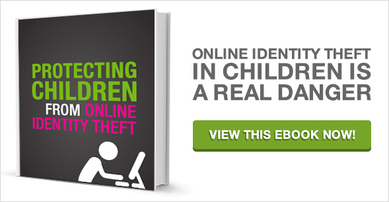
 This article was originally published on Common Sense Media by blogger Deborah Gilboa.
This article was originally published on Common Sense Media by blogger Deborah Gilboa.
You've heard of helicopter parenting. But how about those parents who don't only hover -- they're out there in front of their kids clearing every obstacle? I call them "snow blower" or "lawnmower" parents, and although their efforts to protect their kids come from a good place, they're not allowing them to develop the skills they need to recover from setbacks -- to be resilient, in other words.
I'm part of a growing movement of what I call "Resilience Parents." We're doing our best to raise kids who can clear most of their own obstacles -- and get back up when they run full speed into one they didn't see.
You can apply the concept of resilience parenting to your kids' media and technology use. Media use is pervasive; raising a child who doesn't know how to use technology would handicap her. However (and it's a big challenge), many adults feel that our constant dependence on screens is leading directly to kids who are entitled and somewhat helpless rather than resilient. But the constant presence of technology can actually help you build the character traits you want in your children. Here are some ideas:
-
Create a contract for privileges. Kids want privileges, and parents want to teach responsibility. Match these up by developing a document with your child outlining what he may do online and with devices as well as other important limits. Ask him for a list of privileges he doesn't have but wants. Your child can earn some of those privileges by sticking to the agreement reliably. You'll teach him to be responsible and to earn what he desires.
-
Create some good. Whatever medium is most exciting to your child can become a content-creation platform for her. Videos, a website, social media? Ask her to find a wrong in the world she'd like to help fix and encourage her to use technology to do it! She'll learn self-reliance as she researches the tools she'll need and asks for help when she's stuck.
-
Google yourself. The act of searching for oneself online teaches a whole new understanding of what gets posted by -- or about -- you. One search can teach kids far more respect than a whole series of lectures about it -- or it can show us that our kids are heeding the warnings and behaving really well online!
-
Find trusted resources. Kids know that we look up stuff online. But do they know how to separate the wheat from the chaff? This is a challenge for all of us, and kids are never too young to learn. Talk to them about what makes something or someone a respected resource and what's a credible place to find information you can trust.
-
Crowdsource answers. Many teens make entertainment, wardrobe, or even academic or relationship decisions based on what they think "everybody" likes. Teach your children self-respect by helping them choose when it's good to make judgments alone and when it's fun and useful to ask the group.
-
Guide younger kids. Our children are really responsible about online choices, especially when they're setting limits for someone younger. Ask a child what rules she would put in place for a sibling or a cousin only two years younger. Then ask which parts of that guideline she follows herself. This leads to great learning about responsibility!
-
Find someone admirable. Online is a great place to find role models. Challenge your child to understand resilience -- the ability to overcome adversity with positive action -- and then ask for examples of people your child admires for exhibiting that quality.
Kids want technology, and they need these lessons. Use their interests to bring out the best in them.
Access the full article here.



